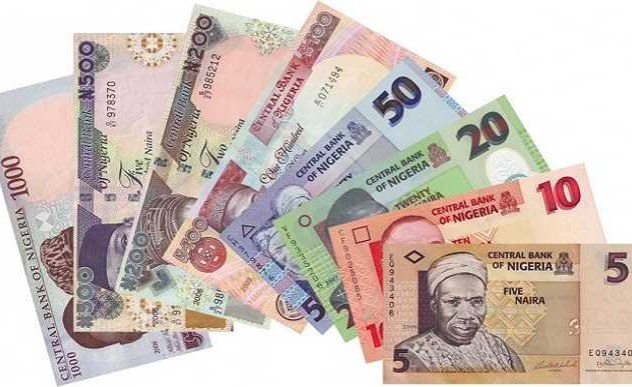Nigerians will soon face restrictions on cash withdrawals as the old naira notes are phased out. Officials say the new measures will revive the economy. But small business owners say they will be hit hard.
Nigerians will soon be unable to withdraw more than 20,000 naira (€42 or $44) a day and 500,000 naira a week from ATMs as the government tries to absorb excess cash in circulation and increase use of the digital banking in Nigeria.
The announcement of the policy, which will take effect on January 9, came a week after the government officially launched the newly designed naira notes.
Although experts say the policies make sense in theory, they caution that bad timing can diminish their effectiveness. Nigeria’s economy is still reeling from multiple shocks, including the devaluation of the naira and the fallout from the coronavirus pandemic.
Limit Traders
Small business owners are already bracing for a loss of revenue once new laws take effect, with many relying heavily on cash-only sales.
“Low cash, bad market,” Lagos trader Lukman Lasisi told DW. “Us market people have very short-term customers. If you don’t have enough cash to buy what customers want, they won’t.” [come to you].”
For the past 12 years, Lasisi has been selling women’s clothing in one of the busiest markets in Lagos. She fears that her already struggling business will be forced to slow down significantly, or even shut down, while wealthier Nigerians who already use digital banking will be relatively insulated from the shock.
“We carry cash, we are used to it,” he said. “But they are upper-class people: they don’t go around with cash.”
Businesses will be able to withdraw up to 5 million naira per week, 4.5 million naira more than individuals. However, the validity period of the old 200, 500 and 1,000 naira bills is also running, which will no longer be accepted as legal tender as of January 31.
In an attempt to ease the transition, both old and new banknotes are currently in circulation. However, locals say the new notes are still too scarce as the deadline approaches. DW was unable to find an example of a new naira note at various banks and ATMs in Lagos.
Some business owners have also refused to accept the new bills from customers, claiming the oversaturated design makes it too easy to counterfeit.
“It seems to be fake,” a woman in Lagos told DW. “The first time they gave me a 1,000 naira note, I said: No, this has to be fake.”
Is demonetization stabilization?
Nigerian President Muhammadu Buhari says the redesign of the naira is aimed at combating illegal financial flows and corruption, while increasing the value of the currency.
Meanwhile, Central Bank of Nigeria Governor Godwin Emefiele says the cash withdrawal restrictions will also allow the CBN to work more closely with the National Economic and Financial Crimes Commission to crack down on illegal transactions.
Ultimately, both measures are part of the CBN’s efforts to demonetize the economy and eventually stabilize it.
“Demonetization happens all over the world and it’s not unusual,” economist Martha Sembe told DW.
“Nigeria has continuously battled high inflation rates throughout the year, from 15.6% in January to 21.5% in November.”
Although CBN’s interventions were generally welcomed by economists, he said, they were likely implemented at the wrong time and too quickly, leaving small business owners and their families to pick up the burden.
“Enduring high year-round inflation, coupled with high food and energy costs, the last thing Nigerians need to worry about now is flocking to bank halls to exchange naira notes,” Sembe said.
Buhari’s economic record in the spotlight before the elections
Throughout his eight years and two terms in office, Buhari repeatedly promised to revitalize Nigeria’s economy. However, the opposite happened: from 2015 to 2020, the country’s economy grew so slowly that the average Nigerian became poorer, taking inflation into account.
From 2015 to 2022, Nigeria’s public debt profile skyrocketed from approximately 12.6 trillion naira to 44 trillion naira. The government currently owes the central bank a record 22 trillion naira.
Economist Kola Ayeye said the government should be more concerned with paying down its own debt than burdening ordinary people with potentially harsh economic measures.
“The total money supply is around 46 trillion naira, and the total amount of cash outside the banks is only 2.7 trillion naira,” Ayeye said. “So all of this effort that is being spent in cash is really only 6% of the money supply.”
“This debt is not only huge: it is also illegal,” Ayeye said. “It has contributed to the devaluation of the currency and must be addressed.”
Nigerians are scheduled to go to the polls on February 25 in a highly anticipated general election that will also see a new president take office. The state of Nigeria’s economy is expected to remain a major issue for voters.
Edited by: Ineke Mulas







